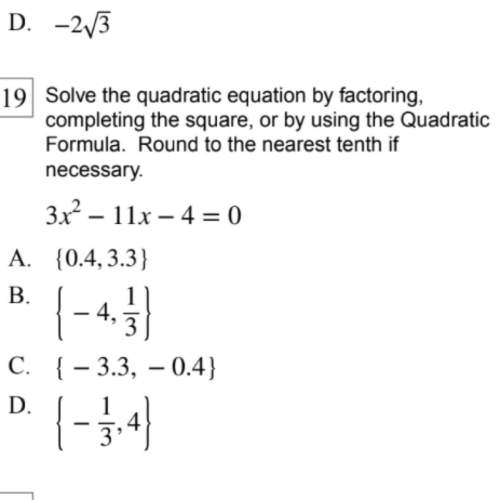
Mathematics, 26.06.2020 23:01 cesarcastellan9
If there is no seasonal effect on human births, we would expect equal numbers of children to be born in each season (winter, spring, summer, and fall). A student takes a census of her statistics class and finds that of the 120 students in the class, 26 were born in winter, 34 in spring, 32 in summer, and 28 in fall. She wonders if the excess in the spring is an indication that births are not uniform throughout the year.
a) What is the expected number of births in each season if there is no "seasonal effect" on births?
b) Compute the χ2 statistic.
c) How many degrees of freedom does the χ2 statistic have?

Answers: 2


Other questions on the subject: Mathematics

Mathematics, 21.06.2019 17:30, nayellisoto15
Lance lived in portugal and brazil for a total of 14 months to learn portuguese. he learned an average of 130 new words per month when he lived in portugal, and an average of 150 new words per month when he lived in brazil. in total he learned 1920 new words. write a system of equations to represent the situation. use x to represent portugal, and y to represent brazil
Answers: 1

Mathematics, 21.06.2019 18:50, millernicholas622
The random variable x represents the number of phone calls an author receives in a day, and it has a poisson distribution with a mean of 8.7 calls. what are the possible values of x
Answers: 1


Mathematics, 21.06.2019 21:00, alexkrol10
Describe how making an ‘and’ compound sentence effects your solution set
Answers: 1
You know the right answer?
If there is no seasonal effect on human births, we would expect equal numbers of children to be born...
Questions in other subjects:







Biology, 30.11.2019 04:31

History, 30.11.2019 04:31

Physics, 30.11.2019 04:31

Chemistry, 30.11.2019 04:31




